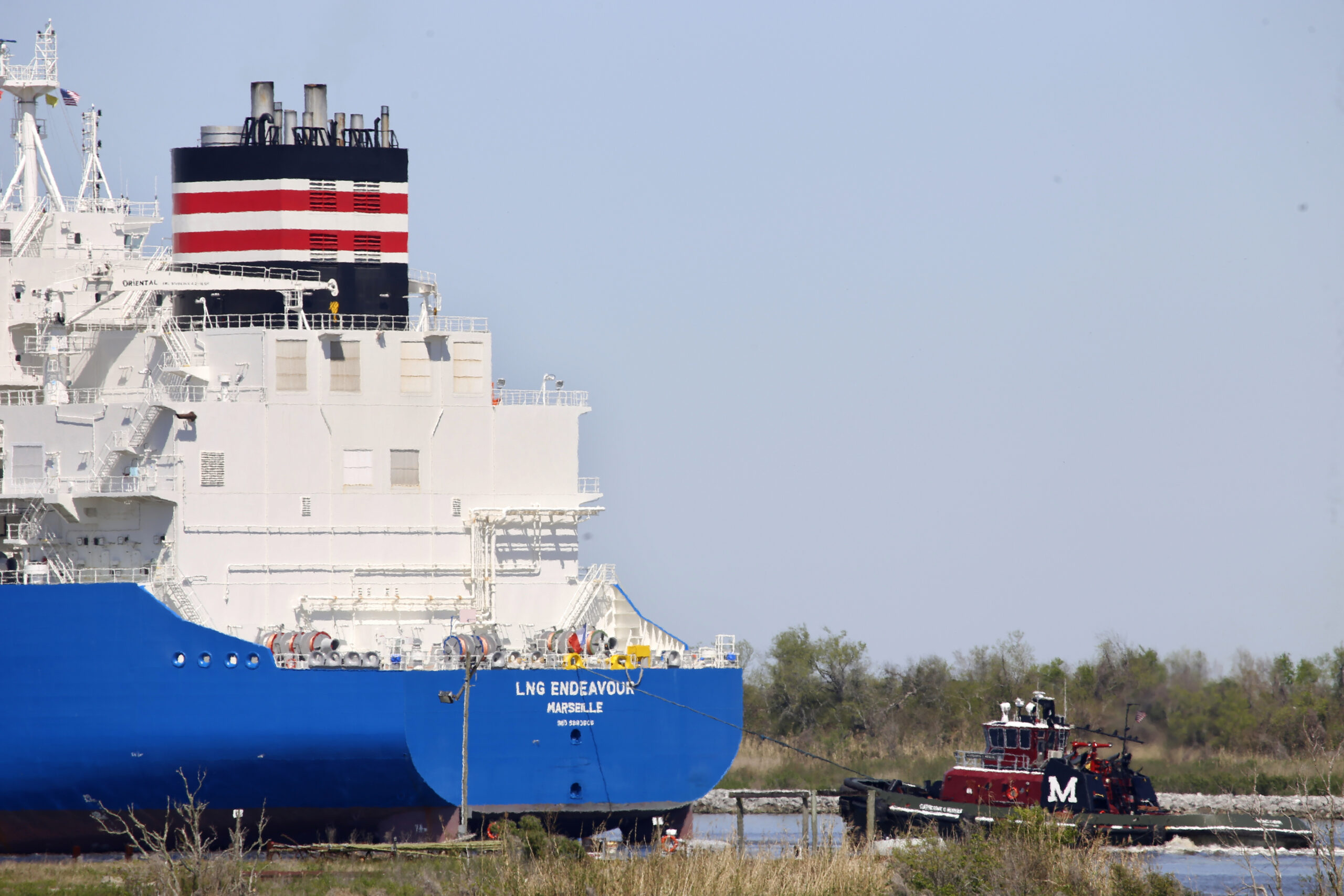

The Biden administration on Friday initiated a pause on how it assesses U.S. liquefied natural gas exports to nonfree trade agreement countries, an announcement that comes amid mounting political pressure from environmental groups and Democrats in Congress to consider potential climate impacts of such projects.
The pause will give the administration time to update its underlying process for approving new LNG export terminals, including to better account for the impact of climate change.
The pause will allow the administration to evaluate climate and environmental impacts for the United States to export such a “sizable” amount of LNG, senior administration officials said on a call previewing the announcement.
It will also allow the administration to consider the economic and national security impacts of new LNG export facilities.
Though Biden administration officials stopped short of giving a time frame for the pause, they said it could take “some months” to update before being published for public comment.
The news comes as the United States has risen to become the world’s No. 1 exporter of LNG, with its capacity projected to double by the end of the decade, according to estimates from the Energy Information Administration.
The U.S. has seven active LNG export terminals and is in the process of building five additional facilities with a baseload export capacity of more than 70 million tons per year.
It has also risen to become a key supplier of LNG to allies in Asia and the European Union, especially following Russia’s February 2022 invasion of Ukraine.
Still, the growth has put the Biden administration under fresh political pressure from Democrats in Congress, who have urged the Energy Department to reconsider the criteria it uses to approve new LNG export terminals as LNG export capacity continues to balloon.
It has also exposed President Joe Biden to new political vulnerabilities just months before the 2024 election.
In November, a group of 60 lawmakers led by Sen. Jeff Merkley (D-OR) urged the Department of Energy to update how it determines whether LNG export projects are in the “public interest,” voicing concerns that the current method of approval “does not fully or accurately consider how LNG exports negatively impact the climate, environmental justice communities, or increase domestic energy prices.”
To date, the lawmakers noted, the Department of Energy has never rejected an LNG export application on these bases, arguing that its “case-by-case approach to approvals ignores the aggregate impact that the explosive growth in U.S. LNG exports is having on climate, communities, and our economy.”
Meanwhile, industry groups and Republicans have argued this growth is needed for U.S. energy security and to help allies avoid an energy supply crisis.
CLICK HERE TO READ MORE FROM THE WASHINGTON EXAMINER
Senate Minority Leader Mitch McConnell (R-KY) criticized the Biden administration’s decision to pause approval of the planned CP2 export terminal in Louisiana to consider climate concerns, arguing that doing so “amount[s] to a functional ban on new LNG export permits” in the U.S.
“The administration’s war on affordable domestic energy has been bad news for American workers and consumers alike,” he said during floor remarks.







